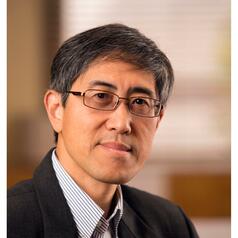
Jingdong Yuan
Associate Professor, Asia-Pacific security, University of Sydney
Associate Professor Yuan specializes in Asia-Pacific security, Chinese defence and foreign policy, and global and regional arms control and non-proliferation issues. A graduate of the Xi'an Foreign Language University, People's Republic of China (1982), he received his Ph.D. in political science from Queen's University in 1995 and has had research and teaching appointments at Queen's University, York University, the University of Toronto, and the University of British Columbia, where he was a recipient of the prestigious Iaazk Killam Postdoctoral Research Fellowship. He is the co-author of China and India: Cooperation or Conflict? (Boulder and London: Lynne Rienner Publishers, 2003) and his publications have appeared in Asian Survey, Contemporary Security Studies, Far Eastern Economic Review, The Hindu, Japan Times, International Herald Tribune, Los Angeles Times, Nonproliferation Review, South China Morning Post, Washington Quarterly, among others. He is currently working on a book manuscript on post-Cold War Chinese security policy. Prior to joining CISS, Dr. Yuan served as Director of the East Asia Nonproliferation Program, and was Associate Professor of International Policy Studies at the Monterey Institute of International Studies, a graduate school of Middlebury College. In July-August 2009, he was a visiting senior research fellow at the East Asian Institute, National University of Singapore.
Less ![]()
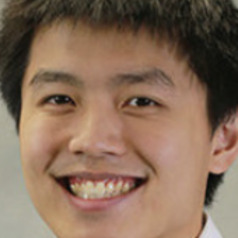
Jinghang Luo
Andrology Fellow, Hudson Institute
Jing is the Andrology Fellow at Hudson Institute/Monash Health in 2023, where he is completing the final year of his Endocrinology training. As part of this role, he looks after men referred for testosterone deficiency as well as those with prostate cancer on androgen deprivation therapy. He is also involved in assessing male infertility and trans health. He has a Bachelor of Medicine/Bachelor of Surgery at Monash University, and a Masters of Clinical Epidemiology at the University of Sydney.
Less ![]()

Jingshi (Joyce) Liu
Lecturer in Marketing, City, University of London
Jingshi (Joyce) Liu is an Lecturer in Marketing at Bayes Business School (formerly Cass), City, University of London. Her research interests include understanding how consumers respond to social factors such as income inequality and socioeconomic status, as well as psychological factors such as self-authenticity. Her research has been published in internationally recognized peer-reviewed academic journals, including Journal of Marketing Research, PLOS One, and Health Economics. Before joining City, University of London, Joyce received a Ph.D. in Marketing at the Hong Kong University of Science and Technology.
Less ![]()
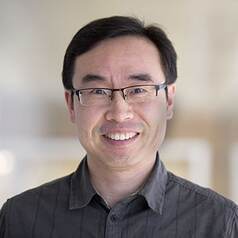
Jingwen Hu
Research Professor, Michigan Transportation Research Institute, University of Michigan
Research Interests
Dr. Hu is Associate Director of the University of Michigan Transportation Research Institute. His research interests primarily focus on impact/injury biomechanics in motor-vehicle crashes by a multidisciplinary approach using a combination of experimental, computational, and epidemiological procedures. He is also interested in human modeling for other applications, including pediatric head injuries in falls and child abuse cases, computer-aided surgery, and seating comfort. One of the highlights of his recent research is the development of parametric computational human models representing a diverse population. Such models have been used to study the injury mechanism and safety design optimizations for various vulnerable populations, such as children, elderly, obese occupants, pedestrians, pregnant women, and wheelchair users. Dr. Hu is an author of 140+ peer-reviewed journal and conference papers. His research has been funded by National Highway Traffic Safety Administration (NHTSA), National Science Foundation (NSF), National Institute of Justice (NIJ), Department of Defense (DoD), and Auto Industry (Ford, GM, Toyota, Honda, ZF TRW, Autoliv, Britax, JCI, etc.).
Less ![]()
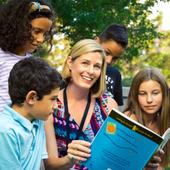
Jini Puma
Clinical Associate Professor of Public Health, University of Colorado Anschutz Medical Campus
Less ![]()
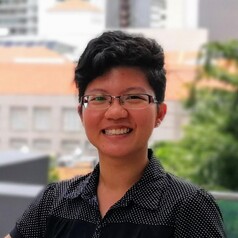
Jinwen Chen
PhD Graduate in Social Geography, Flinders University
I am a qualitative social geographer passionate about research that amplifies diverse community experiences, perspectives, and voices. My PhD research at Flinders University centered around rethinking ageing through LGBTQ+ and multicultural lenses. I currently work in local government, bringing research into policy and practice.
Less ![]()
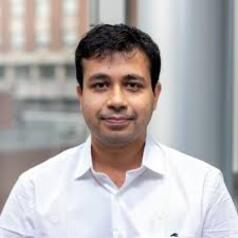
Jishnu Das
Assistant Professor of Immunology and Computational & Systems Biology, University of Pittsburgh
We are a computational systems immunology lab. Our research focuses on the development and use of novel systems approaches to analyze high-dimensional immunological datasets, and elucidate molecular mechanisms of immunological disorders. Our past work has utilized systems approaches to analyze Mendelian mutations in the context of three-dimensional protein-protein interaction networks, to understand molecular mechanisms of corresponding disorders. We have also developed network analyses frameworks to characterize the evolutionary dynamics of these protein networks. Another key dimension of our past work has been the use of statistical and machine-learning approaches for the analyses of high-dimensional antibody-omic to elucidate correlates of vaccine-mediated and natural immunity in HIV, tuberculosis and malaria.
We are currently working on using network systems and functional genomic approaches to perform multi-scale integration of genomic and epigenomic datasets with biological networks to identify molecular phenotypes underlying these immunological disorders, with an emphasis on autoimmune and alloimmune diseases. We also use high-dimensional statistical and machine-learning techniques to integrate multi-omic datasets (genomic, transcriptomic, proteomic, metabolomic and antibody-omic) and elucidate molecular mechanisms of immune regulation and dysregulation.
Less ![]()
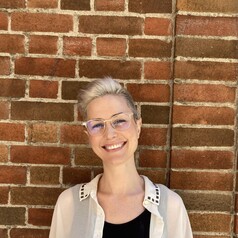
JJ Wright
Assistant Professor, Sociology and Gender Studies, MacEwan University
Dr. Wright earned a Ph.D. from the University of Toronto's Ontario Institute for Studies in Education and was a postdoctoral fellow at McGill University in the Department of Integrated Studies in Education She is a tenure-track Assistant Professor of Sociology and Gender Studies at MacEwan University on Treaty 6 territory in ᐊᒥᐢᑿᒌᐚᐢᑲᐦᐃᑲᐣ (Amiskwacîwâskahikan) in Edmonton. Dr. Wright is a community-engaged researcher who works with regional, provincial, and national organizations primarily to address gender-based violence, through anti-oppressive, trauma-informed, and community-responsive education and policy.
Less ![]()
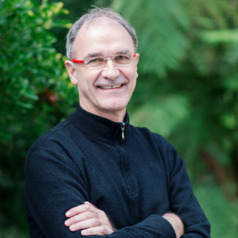
JJeffrey McNeill
Senior Lecturer in Resource & Environmental Planning, Massey University
Jeff McNeill is a senior lecturer in environmental policy and planning in the School of People, Environment and Planning, Massey University, New Zealand. He holds a PhD in politics, a MA(Hons) in Geography and a Master of Public Policy (Distinction). Jeff came to academia after an extensive career in New Zealand central and regional government and as a consultant. He has also spent time working in the New Zealand and European parliaments. His research focuses primarily on the regional level of government and non-state regulation and their implications for environmental management in New Zealand. He is a commissioner on the International Geographic Union Commission on the Geography of Governance.
He also undertakes research from an historical geography perspective of New Zealand soldiers in First World War. Reviews of his recently published book, 'Taking the Ridge: Anzacs and Germans at the Battle of Messines 1917' recognise it as the definitive Anzac account of that battle.
Less ![]()
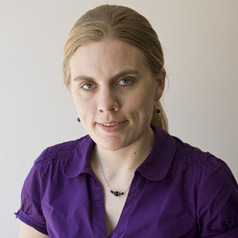
Jo Abbott
Dr Jo Abbott is a health psychologist, research fellow and the Deputy Director (Acting) of the National eTherapy Centre at Swinburne University of Technology. Dr Abbott's research interests include the development and evaluation of technology-delivered health interventions, sleep psychology, mental health, psycho-oncology and health psychology.
Less ![]()

Jo Aubrey
Senior Lecturer and Programme Director Youth and Community Work, Cardiff Metropolitan University
Dr Jo Aubrey is a qualified youth and community worker with significant experience work of with young people both in the UK and in central and eastern Europe as a senior manager, consultant and academic.
She is currently a Senior Lecturer and Programme Director for Youth and Community Work at Cardiff Metropolitan University. She teaches at undergraduate and post-graduate levels and her specialism include the sociology of childhood and youth, safeguarding and the global dimensions of youth work. Her research interests include social action and youth work, research methods with children and young people and community-based participatory action research.
Less ![]()
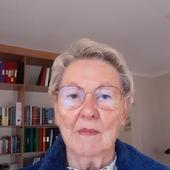
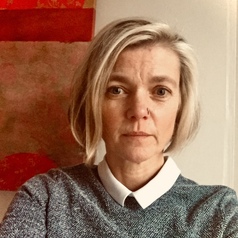
Jo Brewis
Professor of People and Organisations, The Open University
Jo has an undergraduate degree and a doctorate from UMIST, and worked at the Universities of Portsmouth, Essex and Leicester before joining the Open University in April 2018.
Her research Interests include the intersections between the body, identity, sexuality, emotions and processes of organising, as articulated in her ongoing research on menopause in the workplace. Jo also has an abiding interest in academic practices in organisation studies, like peer review and research ethics.
Less ![]()
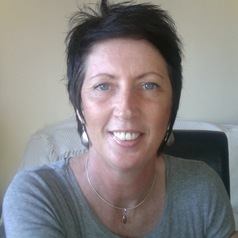
Jo Coghlan
Associate Professor Humanities Arts and Social Sciences, University of New England
Jo’s research uses a sociological and political lens to examine a range of popular culture forms and contexts. An interdisciplinary researcher, Jo has conducted research on a range of popular and material culture areas including gendered political fashion, death studies with a focus on death fashion, critical film and television studies with a focus on class and violence, romance studies which examine issues of representation and historical accuracy, a study of the global history of swim suits (with Dr Lisa J. Hackett), James Bond studies with a focus on material culture, framing of royalty in popular culture with a focus on gender, fashion and celebrity and representations of animals in popular culture in a post-humanist context. Jo is currently writing the history of pigs in popular culture, and along with Lisa Hackett and Huw Nolan is writing a book on the royals in popular culture (Routledge 2024).
Jo is a co-founder of UNE’s Popular Culture Research Network (PopCRN), Australia’s leading popular culture research network and is an Editorial Board Member of The Australasian Journal of Popular Culture (Intellect).
Less ![]()
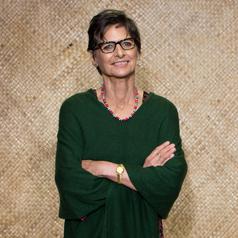
Jo Durham
Senior Lecturer in Disaster Risk Management and Health, Queensland University of Technology
Jo has over 15 years of experience of working development and international health in regions of conflict and natural hazard disaster. With a desire to provide the highest quality evidence base for such important work and achieve better outcomes, she came to academia. She uses strengths-based participatory, co-design process to promote more equitable disaster risk reduction and access to health services.
Less ![]()
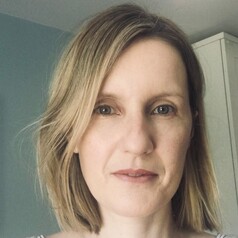
Jo Ellins
Senior Fellow, Health Services Management Centre, School of Social Policy, University of Birmingham
Jo Ellins is Senior Fellow at the Health Services Management Centre, at the University of Birmingham. She is a sociologist by background, but these days most of her work involves evaluating new services and ways of working in healthcare. Over the years Jo has done research in many different fields of healthcare, including cancer services and general practice. Now, she is most interested in children's mental health and, in particular, in the role of schools in promoting emotional wellbeing and in helping children to access mental health support when they need it. She led an early national evaluation of mental health support teams in schools and colleges, and is now co-leading a second study to assess the impact and cost-effectiveness of the government's investment in schools-based mental health. Jo is strongly committed to working in partnership with people who have lived experience of ill-health and using health services. She's worked extensively in research collaborations with service users and carers, including currently with a group of young people with personal experience of, or interests in, mental health. When not at work, Jo works at a local foodbank in Birmingham, is a school governor, and tries (and usually fails) to paddle board without getting wet.
Less ![]()
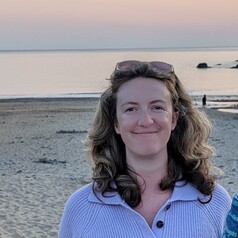
Jo Howard-McCombe
Research scientist, University of Bristol
I am a researcher at the Royal Zoological Society of Scotland, working on a range of conservation genetics projects to support wildlife conservation. I am interested in the application of statistical genetic methods to the conservation of wild populations.
I completed her PhD at the University of Bristol in 2022. My PhD project used genomic methods to understand hybridisation and introgression in the Scottish wildcat population.
Less ![]()
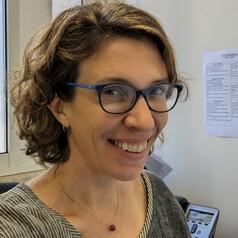
Jo Kelcey
Assistant Professor, Lebanese American University
Dr. Jo Kelcey is an assistant professor of education in the Department of Social and Education Sciences at LAU. She holds a PhD in International Education from New York University. Her research spans interdisciplinary concerns of education, politics, sociology and history, with a focus on how to improve education systems for the most marginalized learners. She has written and published on global governance in education, refugee education and the importance of historical methods for understanding contemporary education policies and practices.
Less ![]()

Jo Mackiewicz
Professor of Rhetoric and Professional Communication, Iowa State University
I study communication and learning in pedagogical and workplace interactions. I’ve published four books about writing centers: three about writing center interactions (Talk about Writing, with Isabelle Thompson; The Aboutness of Writing Center Talk; and Writing Center Talk over Time) and one edited collection (Theories and Methods of Writing Center Studies, with Rebecca Day Babcock). Writing Center Talk over Time won the 2019 award for best monograph from the International Writing Centers Association. Theories and Methods won the 2021 award for best edited collection from the Writing across the Curriculum Association. I’ve also written and cowritten numerous articles. My book, Welding Technical Communication: Teaching and Learning Embodied Knowledge was published by SUNY Press in May 2022. I’ve been working part-time as a welder/fabricator at Howe’s Welding and Metal Fabrication in Ames, Iowa, since spring 2022. In spring 2024, I wrote a book about my experiences learning in a fabrication shop, and I'm revising the book now. Learning Skilled Trades in the Workplace, under contract with Springer, will be available open access in 2025.
Less ![]()
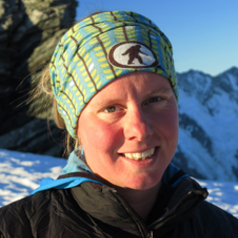
Jo Monks
Lecturer in Ecology, University of Otago
I was a science advisor working on terrestrial threatened species and ecosystems at the Department of Conservation for 14 years before taking up a lecturing position in ecology and wildlife management at the University of Otago in 2021.
Less ![]()
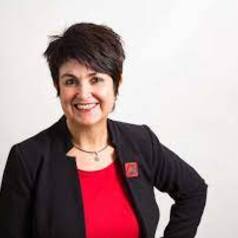
Jo Raphael
Senior lecturer in drama education, Deakin University
Jo Raphael is senior lecturer in drama education at Deakin University. She teaches in postgraduate and undergraduate pre-service teacher education programs and remains active in school and community settings. She has applied drama for learning within diverse contexts including museums and galleries and in areas of the humanities, languages, science and environmental sustainability. Jo is Artistic Director of Fusion Theatre, an inclusive community-based theatre company. She has won multiple awards for her teaching and has been awarded for her extensive contributions to her professional community. Her research and publications span the areas of arts curriculum and pedagogy, teacher education, inclusive education and teaching for diversity. https://orcid.org/0000-0001-5220-314X
Less ![]()
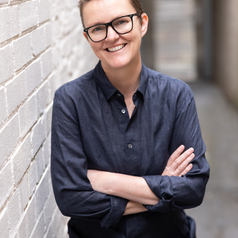
Jo River
Associate Professor, Mental Health Drug and Alcohol, UTS & Northern Sydney LHD, University of Technology Sydney
Jo River is Associate Professor Mental Health Drug and Alcohol, Faculty of Health UTS and Northern Sydney Local Health District. River has expertise in participatory research in mental health, drug and alcohol and social determinants of health. Their work involves partnering with key stakeholders and people with lived (and living) experience to ensure research is grounded in community priorities and relevant and resonant to those most impacted by research-informed policy and services. River uses community development principles and substantive participatory research methods, drawing on approaches such as co-production and co-design, to centre shared and equitable decision-making and continuous participation throughout all stages of the research process.
Less ![]()
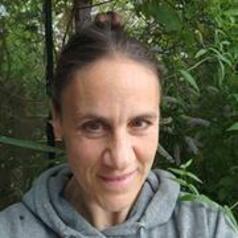
Jo Wilding
Jo Wilding is a lecturer in law at the University of Sussex. She is Principal Investigator on an ESRC-funded New Investigator Grant researching demand and provision of social welfare and immigration legal advice (SWILAmap). Her previous research has focused on access to immigration legal advice including projects commissioned or funded by the Welsh Government, East of England Local Government Association, Paul Hamlyn Foundation, Justice Together Initiative, Refugee Action, Community Justice Fund and more. Her book, 'The Legal Aid Market' was published by Bristol Policy Press in 2021.
She was previously a barrister at Garden Court Chambers in London, and is a member of the Bar Council's research peer review panel.
Less ![]()
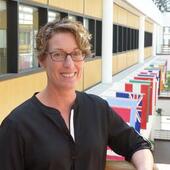
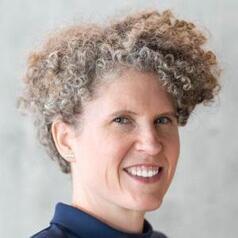
Joan Casey
Associate Professor of Environmental and Occupational Health Sciences, University of Washington
Joan A. Casey received her doctoral degree from the Department of Environmental Health Sciences at Johns Hopkins Bloomberg School of Public Health in 2014. Dr. Casey is an environmental epidemiologist who focuses on environmental health, environmental justice, and sustainability. Her research uses large secondary health datasets, such as electronic health records, to study the relationship between emerging environmental exposures and population health across the lifecourse. She also considers vulnerable populations, joint social and environmental exposures, and health disparities, particularly in an era of climate change. Dr. Casey investigates a range of exposures including wildfires, power outages, ambient temperature, the built environment, fossil fuel infrastructure, and concentrated animal feeding operations.
From 2014-2016, Dr. Casey was a Robert Wood Johnson Health and Society Scholar, and from 2019-2022, she was the co-chair of the International Society for Environmental Epidemiology North American chapter. She also serves as an editorial board review member for Environmental Health Perspectives. Dr. Casey also holds a BS in Biological and Environmental Engineering from Cornell University and an MA in Applied Physiology from Teachers College at Columbia University.
Less ![]()
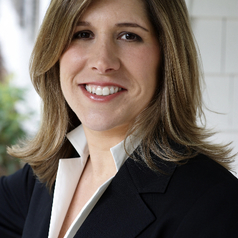
Joan Cook
Associate Professor of Psychiatry, Yale University
Dr. Joan Cook is an Associate Professor in the Yale School of Medicine, Department of Psychiatry and a 2015 Public Voices Fellow at The Op-Ed Project.
She has numerous publications in the traumatic stress and geriatric mental health fields, including scientific papers on the phenomenology, assessment and treatment of older adult trauma survivors.
Dr. Cook has worked clinically with a range of trauma survivors, including combat veterans and former prisoners of war, men and women who have been physically and sexually assaulted in childhood and adulthood, and survivors of the World Trade Center bombing.
She is funded by the National Institute of Mental Health to study the implementation of evidence-based psychotherapies for PTSD in community settings.
Less ![]()
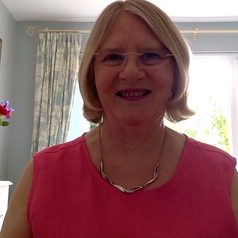
Joan Mowat
Reader in the School of Education, University of Strathclyde
Dr Joan Mowat is a Reader at the Strathclyde Institute of Education. Joan’s research interests focus primarily on inclusion, social, emotional and behavioural needs, and the wellbeing of children and young people (particularly those who are disadvantaged through poverty or disability), but she has also published in the fields of leadership, policy and transitions. She has acted as an expert witness to the Scottish Parliament and is a member of the Cross-Party Group for Children and Young People. She is author of ‘Building Community to Create Equitable, Inclusive and Compassionate Schools through Relational Approaches.’
Less ![]()
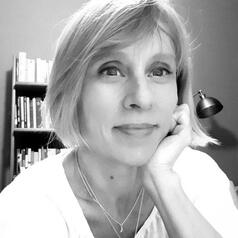
Joan Tumblety
Associate Professor of French History, University of Southampton
I am a historian of modern France, specialising in the entwined cultural, gender and political histories of the twentieth century. Although I began my career focusing on the cultural and gender politics of the far right, my current research draws on perspectives from the history of health and medicine to explore natural health cures and the emergence of self-help across the early to mid-twentieth century period.
I first explored the interrelation of gender and politics in my doctoral research on fascist writers during the Occupation of France, 1940-1944. I was struck by how systematically parts of the collaborationist press filtered and refined their political and historical views through notions of masculinity and femininity. I expanded this engagement with masculinity by exploring the imagined connection between national decline and male physical failure in a monograph about the world of French physical culture, 1918-1945. My doctoral studies also nurtured a scholarly interest in the instrumentalization of memory, and this resulted in the publication of an edited collection for Routledge in 2013.
Less ![]()
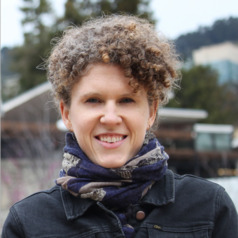
Joan A. Casey
Assistant Professor of Environmental and Occupational Health Sciences, University of Washington
Joan A. Casey received her doctoral degree from the Department of Environmental Health Sciences at Johns Hopkins Bloomberg School of Public Health in 2014. Dr. Casey is an environmental epidemiologist who focuses on environmental health, environmental justice, and sustainability. Her research uses electronic health records and spatial statistics to study the relationship between emerging environmental exposures and population health. She also considers vulnerable populations and the implications of health disparities, particularly in an era of climate change. Dr. Casey investigates a range of exposures including unconventional natural gas and oil development, coal-fired power plants, and concentrated animal feeding operations. Dr. Casey also holds a BS in Biological and Environmental Engineering from Cornell University and an MA in Applied Physiology from Teachers College at Columbia University.
Less ![]()
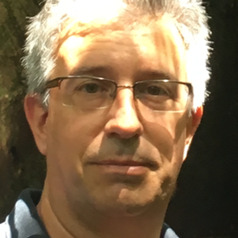
Joan Albert Arnaiz Gargallo
Institut d’Investigacions Biomèdiques August Pi Sunyer - Hospital Clínic Barcelona / IDIBAPS. Profesor Agregado de Farmacología Clínica, Universitat de Barcelona
Joan Albert Arnaiz Gargallo es Doctor en Medicina y especialista en Farmacología Clínica. Su actividad profesional se centra principalmente en la investigación clínica con medicamentos, la selección de fármacos y la docencia de grado y posgrado en las áreas de Farmacología, metodología y terapéutica. Ha publicado artículos originales y capítulos de libros sobre ensayos clínicos, farmacología clínica y seguridad de los medicamentos. Es Profesor Agregado en la Universidad de Barcelona y Consultor Sénior en el Hospital Clínic de Barcelona.
Less ![]()
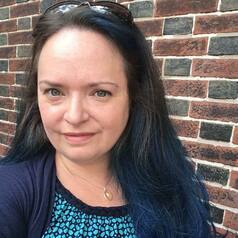
Joan Maya Mazelis
Associate Professor of Sociology, Rutgers University
Dr. Mazelis is an Associate Professor of Sociology in the Department of Sociology, Anthropology and Criminal Justice, the Director of the Gender Studies Program at Rutgers University-Camden, a Faculty Affiliate at the University of Wisconsin’s Institute for Research on Poverty, a member of the Council on Contemporary Families and of the Scholars Strategy Network. Dr. Mazelis received her B.A. from Binghamton University of the State University of New York and her M.A. and her Ph.D. in Sociology from the University of Pennsylvania.
Dr. Mazelis is passionate about using research to advance public understandings of important issues and amplifying the voices of those in poverty. In addition to her peer-reviewed scholarship, she is an award-winning public sociologist; she is a member of the inaugural class of 2022 Public Sociology Award recipients from the Eastern Sociological Society and the winner of the 2022 Michael Harrington Award from The Poverty, Class, & Inequality Division of the Society for the Study of Social Problems. She has authored blog posts and brief reports for The Society Pages, the Council on Contemporary Families, and the Scholars Strategy Network. She has been a frequent source for journalists writing about poverty and related issues, and has been quoted as an expert by outlets such as The 19th, WalletHub, Today.com, NBC10 Philadelphia, The Philadelphia Inquirer, and Politifact. Dr. Mazelis has been a guest on NPR’s The 1a, and her op-eds have appeared in The Philadelphia Inquirer, The Hill, and The Washington Post.
Less ![]()
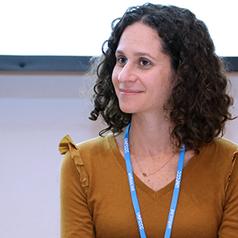
Joana Setzer
Associate Professorial Research Fellow, Grantham Research Institute on Climate Change and the Environment, London School of Economics and Political Science
Joana Setzer is an Associate Professorial Research Fellow at the Grantham Research Institute on Climate Change and the Environment, at the London School of Economics and Political Science (LSE). Her main areas of expertise are climate litigation and global environmental governance.
Since 2013 she has been involved, and since 2020 she leads the Grantham Research Institute’s Climate Change Laws of the World project – the most comprehensive global resource on climate policy and legislation.
Joana served as a Contributing Author for Working Group 3 of the Intergovernmental Panel on Climate Change’s Sixth Assessment Review (IPCC AR6). She regularly advises a range of international, governments and non-governmental organisations. She is a frequent speaker at academic and non-academic events, and a regular source for media outlets. Joana is also co-Chair of the Climate Accountability working group of the Climate Social Science Network.
Less ![]()
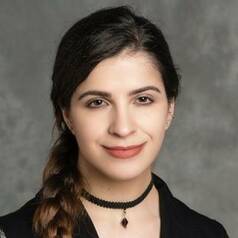
Joana Jacob Ramalho
Lecturer (Teaching), Faculty of Arts & Humanities, UCL
I am an interdisciplinary scholar working across the fields of screen media, cultural studies, literature and language. My research focuses on the Gothic in its many iterations across media, national contexts and historical moments. I have additional research interests in: Film (esp. classical Hollywood cinema, noir and musicals); alternative entertainment (particularly cabaret, burlesque, circus and 'freak shows'); gender politics in film, television and music; intermediality and generic hybridity; representations of mental illness in fiction; political in/correctness, and radical humour; Victorianism (esp. visual culture and mourning practices); and music (esp. film and stage musicals, and musical moments in non-musical films).
My monograph, Memory and the Gothic Aesthetic in Film (Palgrave Macmillan, forthcoming in 2024), analyses the Gothic as centrally concerned with memory and informed by the travels of exile and émigré filmmakers.
I have published on haptic motifs and what I call ‘sensory contagion’ in gothic cinema; thing theory and creepy dolls in gothic and horror films; portraits in 1940s psychological thrillers; gender politics in postmillennial gothic musicals; sexsationalist feminism; intermediality and radical humour in the repertoire of British punk cabaret trio The Tiger Lillies; and the queer failure and mock heroism of King Ludwig II of Bavaria. I have presented my work at several international conferences in the UK, Canada, Denmark, New Zealand, Austria and Portugal and am a peer reviewer for Fantastika Journal and Studies in the Fantastic
I have undertaken UG and MA dissertation supervision in Comparative Literature, Film Studies, Language and Culture (BALC), and Translation Studies on a range of topics including gothic cinema; Francoist cinema; Almada Negreiros; Beyoncé's Lemonade; film and stage musicals; Gothic and Romantic literature and poetry; melancholy (Heimweh) and disenchantment (Entzauberung).
I am currently a joint supervisor to two doctoral candidates working towards a PhD in Creative Critical Writing (with Prof Jakob Stougaard-Nielsen) and a PhD in Geography (with Dr James Kneale).
I welcome proposals for UG, MA and PhD projects that focus on or overlap with any of the research specialisms above.
Less ![]()
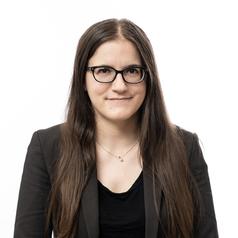
Joanie Bouchard
Assistant Professor of Political Science, Université de Sherbrooke
-Diversity and discrimination
-Electoral Behavior
-Political Psychology
-Canadian and Quebec politics
-Quantitative methods
-Experimental methods
-Mixed methods
Affiliated with:
School of Applied Politics, Université de Sherbrooke
Center for the Study of Democratic Citizenship (CSDC)
Réseau québécois en études féministes (RÉQEF)
PolitiCo, Université Laval
Network for Economic and Social Trends (NEST), Western University
Less ![]()
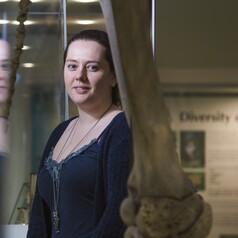
Joanna Baker
Postdoctoral Researcher in Evolutionary Biology, University of Reading
I am currently a Postdoctoral Researcher at the University of Reading funded by the Leverhulme Trust. My interests are primarily involved in macro-evolutionary biology, particularly involving large-scale evolutionary trends and patterns. I am also interested in looking at the effects of incorporating extinct and extant diversity into studies of evolutionary biology and ecology.
Less ![]()
- Market Data























